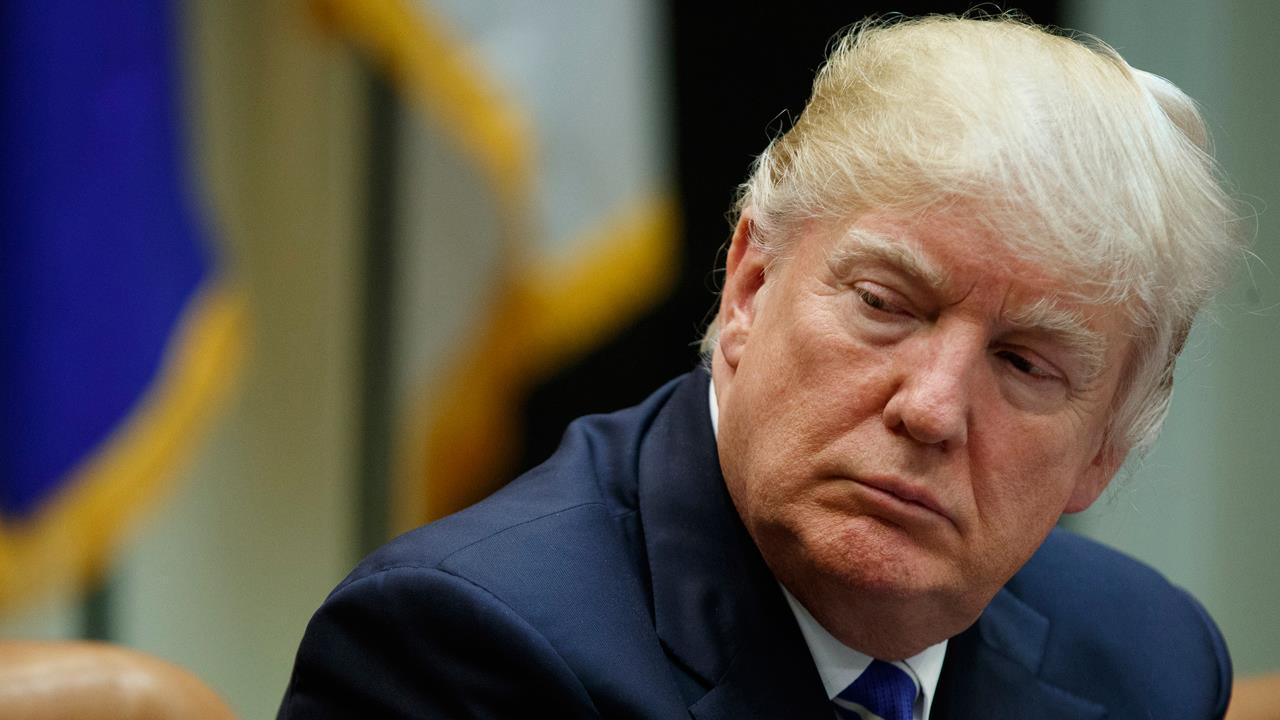Trump ends key ObamaCare subsidies: What you need to know
The White House announced late Thursday that it will discontinue funding for key ObamaCare subsidies, a decision that could rattle the insurance market but likely will force Congress to act before any real damage is done, according to one expert.
“I do think seeing this as part of a negotiation is the right way to see it,” Chris Pope, a senior fellow at the Manhattan Institute, told FOX Business. “It’s quite possible there will be some deal in congress where the subsidies will go back in in return for the [employer] mandate being repealed or [another effort aimed at diminishing the dominance of the exchanges].”
The burden of the costs, without aid from the federal government, will fall onto insurers. Cost-sharing reduction subsidies (CSRs) are reimbursements for discounted care provided to low-income individuals. Insurers asked the federal government for $8 billion to cover these expenses for the coming year. Yet, regardless of whether they are funded, insurers are still required to provide plans with CSR subsidies. The deadline for insurers to finalize plans for the coming year has passed, although some insurers baked the elimination of CSR payments into their premium prices.
America’s Health Insurance Plans and Blue Cross Blue Shield Association said in a statement on Friday that ending the payments will have "real consequences."
"We need constructive solutions that increase consumer choice, lower consumer costs, and stabilize local markets. Terminating this critical program will do just the opposite. This action will make it harder for patients to access the care they need. Costs will go up and choices will be restricted," the statement read.
However, Pope said considering this is neither what insurers signed up for nor what the market is based on, Congress will likely step in to act. Sen. Lamar Alexander (R-Tenn.) and Sen. Patty Murray (D-Wa.) have been working on a bipartisan bill to fix the ailing insurance market, which includes funding for these subsidies.
Trump’s executive order, signed on Thursday, could make the negotiations easier for Republicans, Pope noted.
“It shows Republicans are making progress in turning ObamaCare into something they can live with [by] creating more affordable health care options that are outside of the exchange, which has been a core Republican goal. It makes propping up the exchange less of a domineering entity,” he said.
In fact, Trump suggested it was Democrats that needed to come to the negotiating table to fix the current situation, in a tweet fired off Friday morning.
The Democrats ObamaCare is imploding. Massive subsidy payments to their pet insurance companies has stopped. Dems should call me to fix!
— Donald J. Trump (@realDonaldTrump) October 13, 2017
Given the nature of the situation, Pope said he believes a solution, even a temporary one, likely isn’t far off.
“This is a pretty narrow issue, with pretty self-contained consequences, so that potentially makes it easier to deal with quite quickly,” he said.
An Aetna spokesperson declined to comment on the White House's decision on Friday. Anthem and UnitedHealth did not immediately return FOX Business’ requests for comment.




















